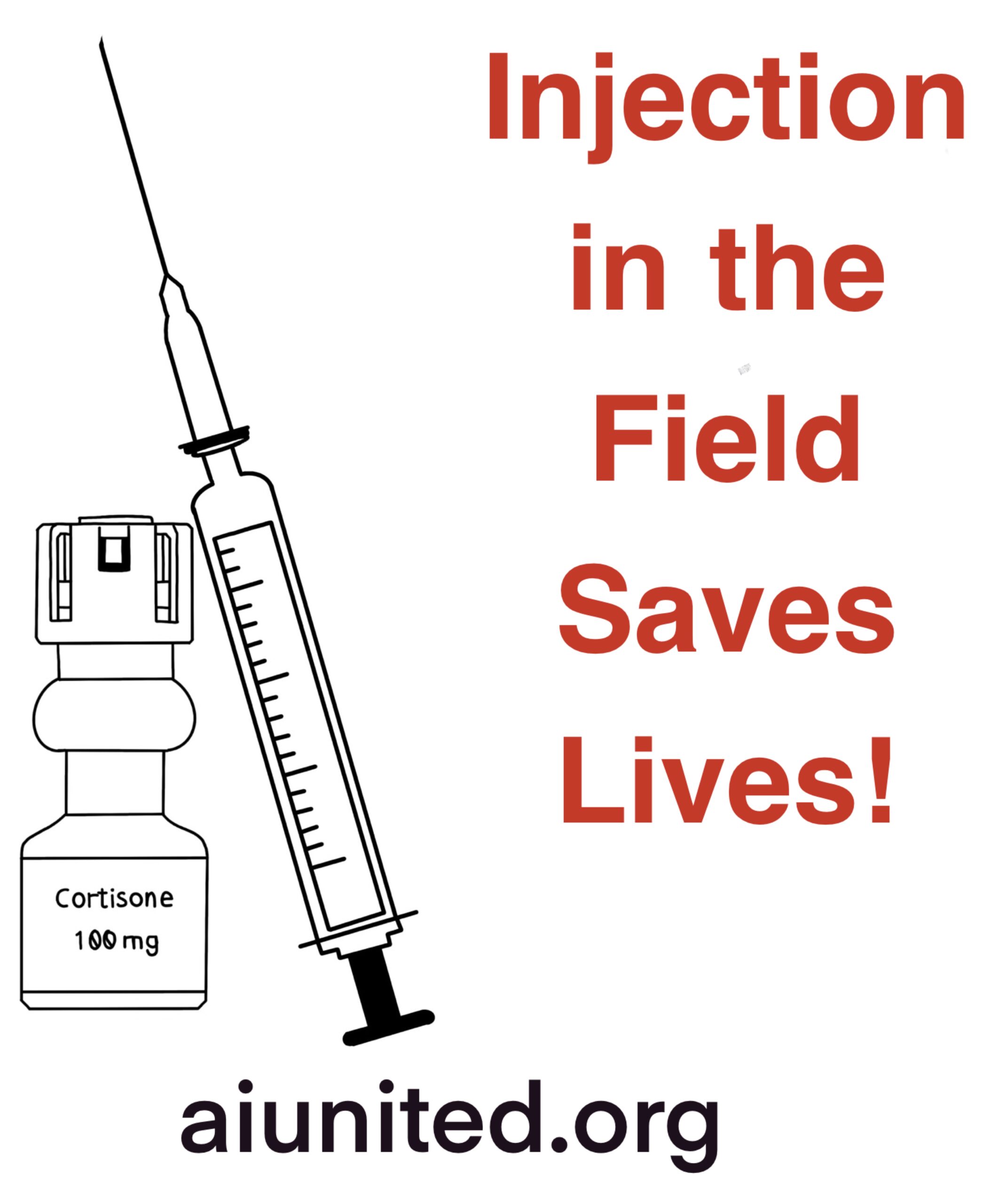Resources for health care providers
Adrenal insufficiency, or AI, is a medical condition in which the. adrenal glands cannot produce glucocorticoids and mineralocorticoids to respond to stressors such as illness and injury.
Patients with AI need to take daily replacement steroids to compensate for their lack of natural supply. During periods of stress, their daily doses is doubled or tripled. This is referred to as stress-dosing.
An emergency supply of steroids must be available for use in the event of vomiting, illness, diarrhea, high fever, altered consciousness/confusion, or trauma. Otherwise symptoms can worsen into an Adrenal Crisis which can cause death.

Do not wait until the patient has deteriorated before providing steroids. Hypoperfusion, organ damage,
and death can result from delays.
An IM injection of Solu-Cortef® is the preferred medication to prevent and treat an adrenal crisis.
- The onset and escalation of severe AI is related to patient age, physical condition, and the underlying precipitating event.
- Pediatric patients are at risk of rapid deterioration — even with a simple illness.
- A third of adrenal crises occur outside of the home. Vomiting and diarrhea account for most of these crises, due to interference with medication absorption.
- Signs and symptoms of adrenal crisis are similar to other shock presentations.
- In addition to standard shock management, it is vital that these patients receive supplemental administration of a corticosteroid such as Solu-Cortef®.
It is important for the field medic to anticipate the changing nature of an adrenal crisis and respond proactively, following the proper protocols.
Do not wait until the patient has deteriorated before providing steroids. Hypoperfusion, organ damage, and death can result from delays.
